Expert tips
Minty Articles

The F&B landscape in Singapore is one of the toughest in Asia. With rental costs climbing, manpower shortages, and endless competition, café and restaurant owners need smarter ways to stay ahead. One tool that’s simple, effective, and affordable? Promo codes. Promo codes aren’t just about slashing prices. Used strategically, they help you attract customers, build loyalty, boost sales during quiet hours, and even measure marketing success. Here’s how you can put promo codes to work for your outlet. Attract New Customers with Welcome Offers Customers love deals, and nothing nudges a first-time diner more than a welcome discount. Example: “WELCOME20 – Get 20% Off Your First Visit.” Benefit: This lowers the barrier of entry and encourages people to try your food. For new F&B startups, this is one of the fastest ways to build awareness and trial, especially when combined with social media ads. Turn One-Time Visitors into Regulars Promo codes linked to repeat visits create a habit loop. By rewarding diners who come back, you encourage long-term loyalty. Example: “LOYALTY10 – Get $10 Off Your 3rd Visit.” Benefit: Keeps customers engaged, driving higher lifetime value. Pair this with CRM integration to personalize rewards. For instance, give frequent diners extra perks on birthdays or anniversaries. Keep Seats Full During Off-Peak Hours Every F&B outlet has dead hours. Why let tables sit empty when promo codes can fill them? Example: “TEATIME15 – 15% Off Between 3–5 PM.” Benefit: Smooths out demand across the day, improving overall profitability. This helps maximize your rental dollars — since you’re paying for the space 24/7, why not make it work harder for you? Strengthen Delivery & Online Orders Online orders are now a must-have revenue stream. Promo codes can help shift traffic away from costly delivery platforms and onto your own channels. Example: “DIRECT5 – Save $5 When Ordering from Our Website.” Benefit: Customers enjoy savings, while you avoid high commissions. When linked with your POS, these orders integrate seamlessly into your operations, improving efficiency. Track Campaign Effectiveness with Ease Traditional promotions are hard to measure. Promo codes solve this by being fully trackable. Benefit: You’ll know which codes drove traffic, which boosted sales, and which platforms brought in customers. Impact: Marketing decisions become data-driven, reducing wasted spend. For small outlets with limited budgets, this ensures you invest only in what works. Amplify Reach with Influencer Partnerships Food influencers are powerful in Singapore’s dining scene. Promo codes make influencer campaigns more effective by giving them something tangible to share with their followers. Example: “Use Code ALEXEATS for 10% Off” shared by an Instagram food blogger. Benefit: Increases trust and traceability. You’ll know exactly how many diners came because of that influencer. This makes influencer marketing less about vanity metrics and more about measurable sales. Final Thoughts: Smarter Marketing with Promo Codes Promo codes are no longer just a gimmick. For F&B businesses, they are a practical, data-driven way to boost customer traffic, encourage repeat visits, and measure ROI. With the right F&B POS system , managing promo codes is seamless — from creating campaigns to tracking results across outlets. In a competitive market like Singapore, promo codes can give your business the edge it needs. If you are interested in getting a CRM to manage your promo codes, a POS systems, QR ordering, online ordering, self ordering kiosks, click here to enquire more.
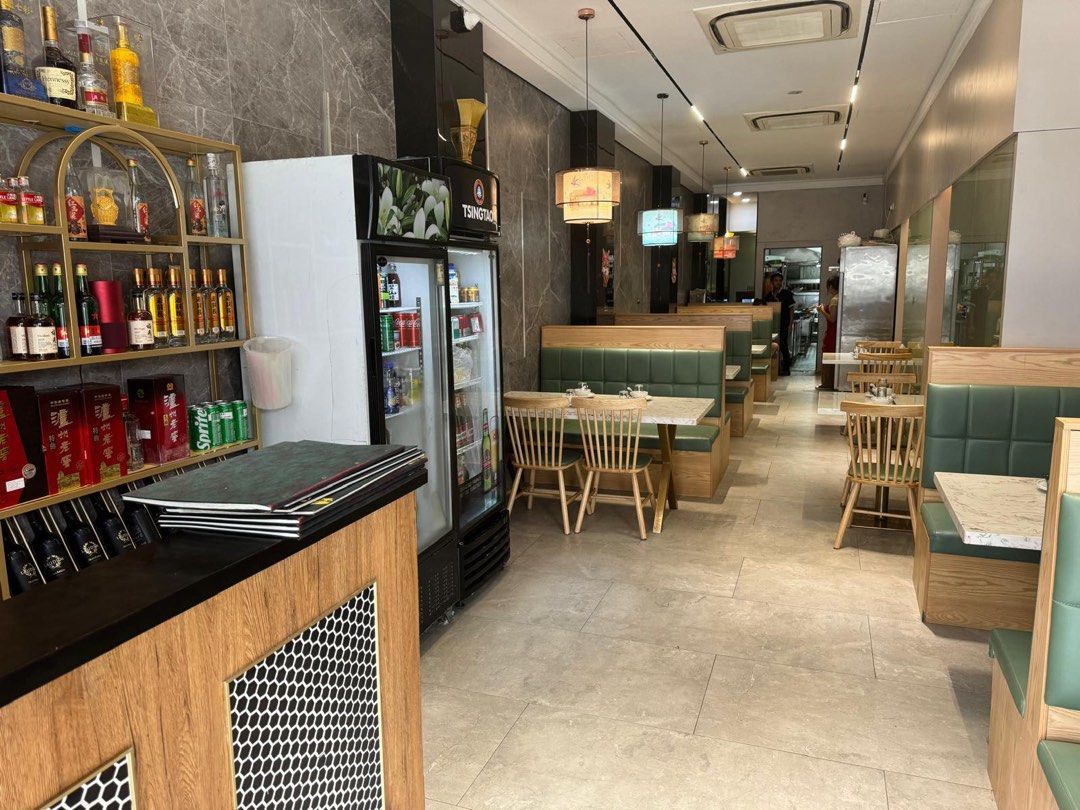
Starting an F&B business in Singapore is exciting—but also incredibly challenging. One of the biggest hurdles? High rental costs. For café owners, hawkerpreneurs, or restaurant founders, rent can easily swallow a significant chunk of your monthly revenue. But here’s the upside: technology offers powerful tools to help you offset high operating costs while keeping your service quality high. If you’re an F&B startup wondering how to survive (and thrive) in Singapore’s competitive food scene, here are proven ways to leverage tech to fight rental pressures. 1. Choose a Strategic Location, Focus on Marketing Instead of splurging on prime locations with sky-high rents, consider a more affordable spot and reinvest your savings into marketing efforts. Lower overheads free up cash flow for advertising campaigns. Boost visibility through social media, Google ads, and collaborations with food influencers. Leverage food delivery platforms as a marketing tool—offer first-time order discounts and bundle deals to win new customers. 2. Reduce Manpower Costs with Self-Ordering Tech Manpower shortages and rising wages add extra strain to your finances. Self-ordering kiosks and QR ordering systems can: Let customers order and pay on their own Cut queues and speed up table turnover Reduce human errors in orders Allow you to run with fewer staff while maintaining fast service 3. Use Inventory Management Software to Cut Waste Food waste is silent profit leakage. By using POS-integrated inventory tools, you can: Predict demand based on sales history Order just the right amount of stock Keep storage space lean and organised 4. Boost Off-Peak Sales with Smart Pricing Don’t let your restaurant sit empty outside peak hours. Implement yield management by: Offering time-limited discounts between lunch and dinner Running loyalty rewards for off-peak visits Sending push notifications with flash deals 5. Invest in an Integrated POS System A modern POS isn’t just a cash register—it’s your command centre. Look for one that integrates with: Inventory tracking CRM loyalty programs Delivery platforms Real-time sales reporting This lets you make data-driven decisions while running leaner operations. Rental in Singapore will likely stay high for now but by adopting the right tech stack, you can operate efficiently, save costs, and keep customers coming back. Looking for F&B solutions such as an F&B POS system, QR ordering, online ordering, self ordering kiosk for your F&B business? Click here to find out more

If you're opening your first F&B outlet in Singapore, selecting the right POS system is a big step. With so many deals out there, it's easy to fall for a cheap offer. But is it the smart move? Cheap POS Systems: Short-Term Gain, Long-Term Pain While budget-friendly POS bundles may look appealing, they often come with: Fragile consumer-grade tablets Basic or outdated software No after-sales support Limited upgrades or scalability You may end up replacing them within a year — or sooner — if business picks up. Reputable POS Vendors: Built to Last Leading POS providers offer: Enterprise-grade terminals tested for daily use All-in-one systems that handle orders, payments, loyalty, and reporting Fast, reliable support – online, onsite, or WhatsApp Future-proof solutions that grow with your business Invest in Growth, Not Just Cost Savings As your operations grow, you’ll appreciate the flexibility and reliability that only a professional POS system can deliver. Get it right from the start. Choose a trusted POS vendor who understands F&B operations — not just sells software. Interested in F&B solutions? Contact us by clicking here !
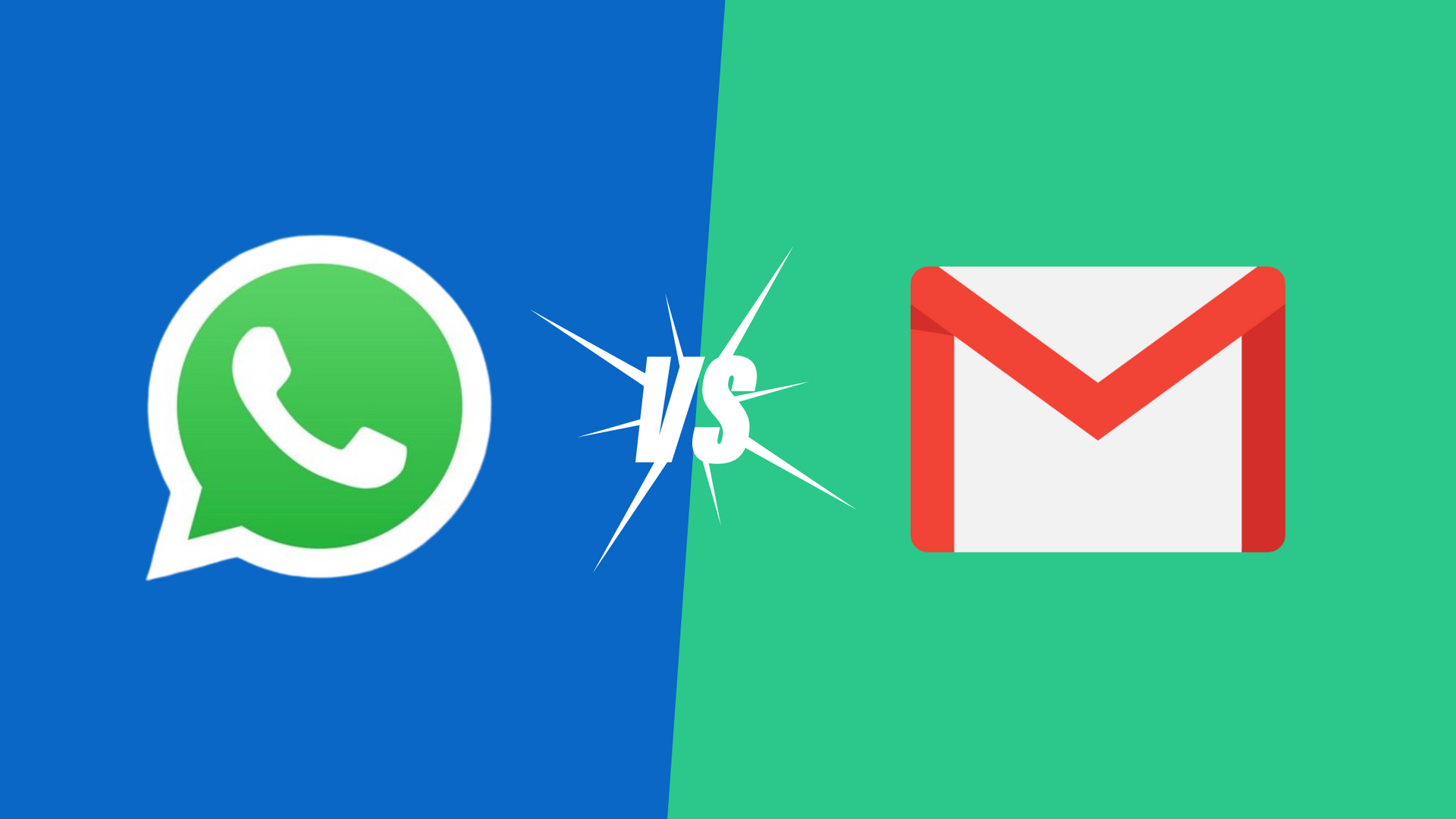
In Singapore’s hyper-competitive food and beverage scene, staying connected with your customers is no longer optional—it’s essential. While email has long been the default for digital engagement, F&B businesses are now turning to WhatsApp as the go-to tool for faster, more personal communication. WhatsApp Outperforms Email Where It Matters Open rates that matter: WhatsApp boasts open rates of over 90%, compared to 25% or less for email. That means your promos are far more likely to be seen. Real-time impact: A lunch special sent at 10 a.m. can fill tables by noon—try doing that with email. Fewer steps, higher conversion: With a clean message format and a single tap to redeem vouchers or make bookings, WhatsApp converts better for time-sensitive campaigns. Email Still Has Its Place For storytelling & rich content: Want to showcase your new seasonal menu or behind-the-scenes chef interviews? Email gives you space. Loyalty and automation: Email excels at long-term nurturing, reward systems, and reactivation campaigns. Formal, official communication: Receipts, membership summaries, and full-length newsletters are still best suited for inboxes. Use Both for Best Results Launch flash sales or limited-time vouchers via WhatsApp Share loyalty points summaries, event invites, or reservation confirmations via email Use an integrated F&B POS & CRM solution like MEGAPOS to automate and track both in one place Conclusion Smart F&B chains in Singapore are already using WhatsApp to fill tables, boost voucher redemptions, and stay top-of-mind. Don’t just rely on email alone—diversify your outreach and engage your customers where they are most active. If you are interested in exploring using WhatsApp as a channel for your members engagement campaigns, click here to find out more!

Singapore's F&B industry has rapidly embraced technology—from QR ordering systems to delivery app integrations and self-service kiosks. But one thing has remained consistent: the Point-of-Sale (POS) system is still the operational hub of every restaurant or café. In a tech-driven landscape where automation is often seen as the solution to rising labour costs and competitive pressure, POS systems have not become obsolete. Instead, they've evolved into more powerful, cloud-connected hubs that support various customer touchpoints and internal workflows. Evolution of POS in Singapore Legacy POS: Cash register-based systems that only supported basic billing. Touchscreen Terminals: Provided real-time inventory tracking and digital receipts. Cloud POS Systems: Enabled multi-outlet management, QR ordering, and CRM integration. Today, modern POS systems are API-friendly, mobile-responsive, and integrate effortlessly with Singapore's payment infrastructure including NETS, PayNow, and mobile wallets. Why POS Systems Are Still Essential Omni-Channel Sales Handling POS systems now consolidate orders from dine-in, QR, online delivery, and kiosks into a single dashboard. Singapore-Ready Payments Seamless support for e-wallets, NETS, and card payments means faster checkouts. CRM Integration Run membership programs, automate voucher issuance, and encourage customer retention. Data-Driven Operations Generate real-time sales reports, GST summaries, and staff performance reviews across multiple outlets. A Smart Business Backbone From small hawker stalls to established franchises in Singapore, the POS system is no longer just a cash register. It’s a smart business backbone that enables growth, enhances customer experience, and reduces inefficiencies. If you're looking to digitalize your F&B business, make sure you start with a reliable POS system. Click here to contact us and find out more!

Whether you're managing a boutique cafe in Tiong Bahru or a fast-paced restaurant chain in the CBD, your POS system is central to your success. It’s not just a cash register—it’s your operations hub. Below are the most powerful POS features every F&B manager should be taking full advantage of: 1. Live Sales Reporting Real-time sales dashboards allow managers to make fast, informed decisions. See what’s selling, when your rush hours are, and how much revenue each staff member generates. Whether it’s adjusting your menu or planning your next promo, the data is at your fingertips. 2. Automated Inventory Control Track ingredients and stock across shifts without manual spreadsheets. Each transaction updates inventory counts in real-time, which means fewer stockouts, better forecasting, and reduced wastage—especially critical for kitchens with fresh produce or high food cost items. 3. Integrated QR & Cashless Payments Speed and safety are key in the F&B space. With built-in QR ordering and contactless payment options, your customers can browse the menu, order, and pay—all from their mobile phone. It’s efficient, hygienic, and perfect for cafes with limited staff. 4. Staff Management Tools From clock-ins and shift logs to sales performance, a modern restaurant POS system should include comprehensive staff tracking. Use this data to monitor productivity, reduce time theft, and make informed rostering decisions. 5. Built-in CRM & Promotions Engine Offer loyalty points, auto-discounts, and personalised birthday treats through your POS system. This drives repeat business and improves customer satisfaction, especially for Singapore diners who love rewards and value. 6. Multi-Branch Synchronisation If you're running a chain or planning to expand, you’ll need a POS for multiple outlets . Sync sales, stock, and reporting across locations so HQ can manage from a single backend while giving outlet managers branch-level control. 7. Kitchen Display & Delivery App Integration A POS that connects directly to kitchen displays and delivery apps saves time and avoids double-entry errors. When a customer places an online order, it goes straight to the kitchen—no delay, no miscommunication, no chaos. Conclusion Today’s F&B POS systems are more powerful than ever. With us, you’re not just getting a payment solution—you’re getting a fully integrated restaurant management tool that helps you grow and operate smarter. Explore our solutions by getting in touch —perfect for cafes, cloud kitchens, restaurants, kiosks, and growing F&B chains.

A Successful F&B outlet in Singapore does more than serving good food, it’s about knowing your numbers, too. With the right F&B POS system, real-time sales reporting can drive smarter, faster business decisions that keep you ahead of the competition. 1. Make Smarter Purchasing Decisions Real-time data from your POS system reveals which dishes sell well and which don’t. This insight helps you cut food waste, avoid overstocking, and negotiate better deals with suppliers. 2. Monitor Multiple Locations from Anywhere For F&B chains, real-time reporting means managers can track sales and performance across outlets remotely. No more waiting for manual reports or daily closing summaries. 3. Boost Staff Accountability and Productivity A modern restaurant POS lets you see staff sales in real time. This helps spot top performers and provides opportunities for quick coaching, ensuring every team member contributes to outlet targets. 4. Adapt to Customer Demand Instantly Spikes in demand? Real-time reports help you adjust manpower, promotions, and kitchen prep on the fly—maximising sales during peak periods. Whether you operate a single outlet or an F&B chain, real-time sales reporting through a reliable POS system empowers you to run leaner, faster, and more profitably. Want to unlock these insights for your business? Click here to find out more about how our POS & CRM solutions can help!
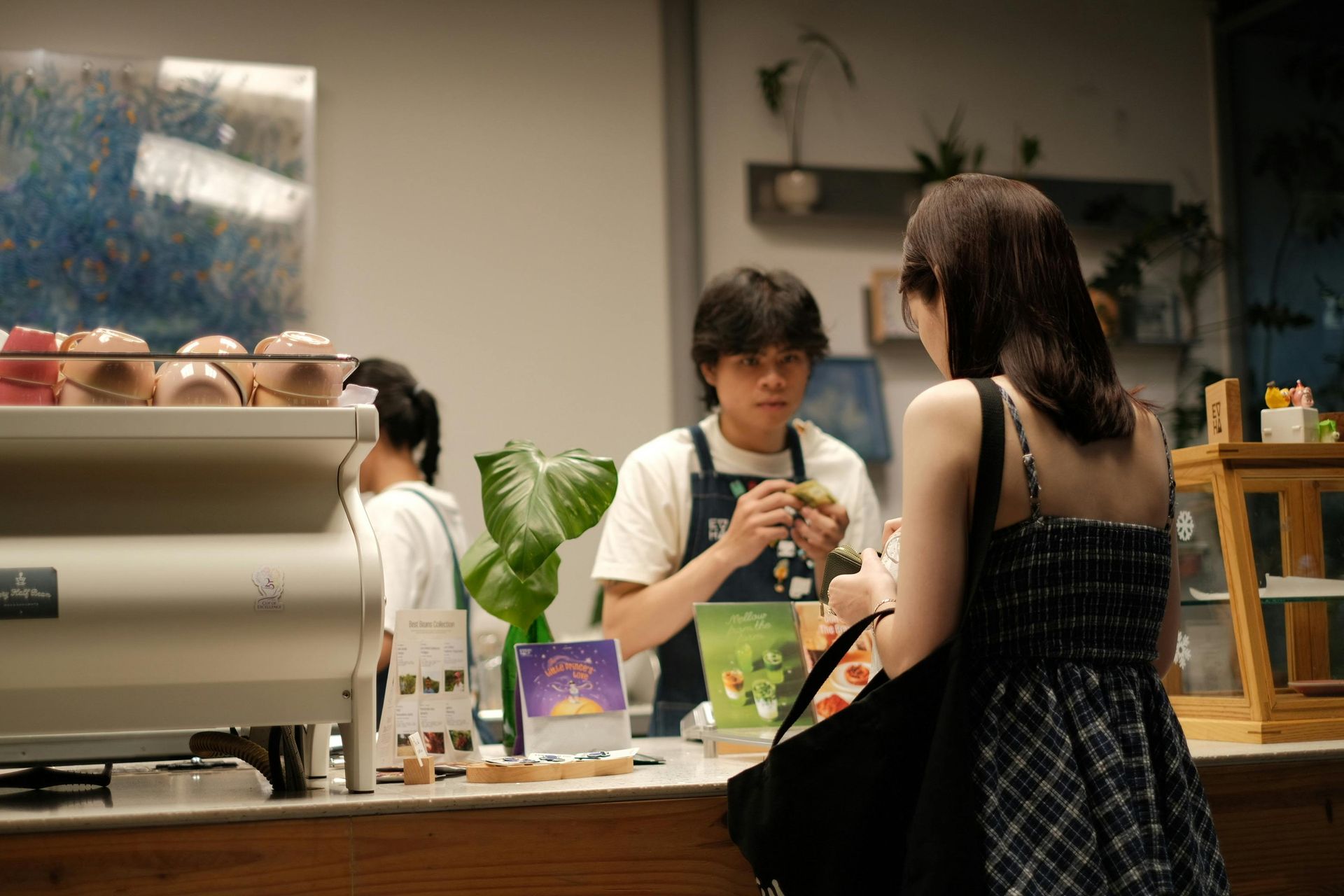
For every restaurant, cafe, or food stall in Singapore, handling customer complaints is an essential part of service quality. Even the best F&B businesses will face unhappy diners—but the real test is how your team responds. Here is a concise guide on how to manage difficult customers professionally : 1. Respond Calmly and Professionally When a customer raises an issue—whether about food quality, waiting time, or service—remain calm. Use polite phrases like “Thank you for letting us know” to ease tension. 2. Resolve the Issue Quickly Empower staff to offer instant solutions: food replacement, a small free drink, or loyalty points via your POS/CRM system to turn dissatisfaction into goodwill. 3. Never Ignore Online Reviews Handle Google and GrabFood reviews swiftly. Apologize, clarify, and offer offline resolution. 4. Train & Equip Staff Use digital SOP guides or in-app staff reminders to maintain service consistency—even during busy hours. Why Good Handling Boosts Business ✔ Avoids bad Google reviews ✔ Retains customers post-complaint ✔ Builds a trusted brand image

In Singapore’s competitive F&B market, having a strong presence on Google is essential for attracting new customers. Whether you run a coffee kiosk, a casual eatery, or a full-service restaurant, Google Reviews can directly influence foot traffic, trust, and even delivery platform choices. Here are some proven strategies to help you gather more authentic Google Reviews —the right way. 1. Make It Effortless with QR Codes Set up QR codes on tables, receipts, or takeaway packaging that link directly to your Google review page. Customers are more likely to leave a review when the process is quick and simple. 2. Ask Customers Personally A polite reminder from your staff can go a long way. When customers compliment the food or service, gently invite them to leave a review on Google. 3. Send Post-Visit Reminders If you collect customer details via reservations or QR ordering, send a thank-you SMS or WhatsApp message after their visit, along with your Google review link. 4. Respond to All Reviews Engage with every review—good or bad. This shows potential customers that your business values feedback and continuous improvement. 5. Offer a Token of Appreciation Encourage reviews by offering small incentives like discounts on the next visit or loyalty points, without demanding only positive reviews (in line with Google’s policies). 6. Highlight Reviews on Social Media Showcase your best reviews on Instagram or Facebook to motivate others to share their experiences too. Why Google Reviews Matter for Singapore F&B Owners ✔ Improves your ranking on Google Maps searches like “best cafe in Singapore” ✔ Builds trust among locals and tourists alike ✔ Influences decisions on delivery apps like GrabFood and Deliveroo ✔ Drives more walk-in customers from nearby areas Final Thoughts Growing your Google Reviews is not about shortcuts or fake posts—it’s about creating great experiences and making it easy for real customers to share them. With consistent effort, your restaurant, cafe, or food stall can build a strong online reputation that pays off in visibility and revenue. If you are looking for a POS system , self ordering kiosk , QR ordering or a CRM solution for your F&B business, we have it all! Click here contact us and find out more
Minty 相关行业资讯
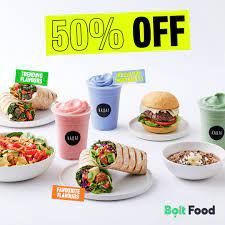
在现代餐饮业,代金券已成为吸引顾客、提升消费体验的常用策略。它们不仅能让顾客享受到实惠,还能为餐厅带来更多的客流量和口碑传播。本文将介绍“10大热门餐饮代金券”,看看你有几个,并探讨这些代金券背后的营销策略和消费价值。 一、满减代金券 满减代金券是最常见的一种,顾客在消费达到一定金额后,可以使用代金券抵扣部分金额。这种代金券能够刺激顾客增加消费,提高餐厅的客单价。 二、新用户专享代金券 为了吸引新客户,餐厅会推出新用户专享代金券。这种代金券通常具有较高的优惠力度,让新客户在首次尝试时就能感受到餐厅的诚意和品质。 三、节日限定代金券 在特定节日或活动期间,餐厅会推出限定版的代金券。这些代金券往往与节日氛围相契合,增加了节日的仪式感,同时也为餐厅带来了更多的节日客流量。 四、生日专享代金券 餐厅会根据顾客的生日信息,发送生日专享代金券。这种代金券不仅能让顾客感受到餐厅的关怀,还能提高顾客的复购率。 五、会员积分兑换代金券 餐厅会设立会员制度,顾客通过消费累积积分,积分可用于兑换代金券。这种代金券鼓励顾客多次消费,提升顾客的忠诚度。 六、 社交媒体互动奖励代金券 通过社交媒体平台与客户互动,鼓励客户分享、点赞或评论,并提供代金券作为奖励。这不仅能够提升品牌在网络上的曝光度,还能够增强客户与品牌之间的互动和黏性。 七、限时秒杀代金券 餐厅会在特定时间段推出限时秒杀代金券,数量有限,先到先得。这种代金券能够刺激顾客的购买欲望,增加餐厅的线上曝光率。 八、 沉睡客户唤醒代金券 针对一段时间内未光临食品摊的沉睡客户,发送唤醒代金券,提醒他们再次光临。这能够重新激发客户的购买欲望,帮助恢复与这些客户的联系。 九、邀请好友赠券 顾客邀请好友注册成为餐厅会员,双方均可获得代金券奖励。这种营销策略有助于增加餐厅的会员数量,扩大餐厅的客户基础。 十、线下活动赠品券 餐厅在线下活动中发放赠品券,顾客在下次消费时可使用。这种代金券能够增强顾客与餐厅的互动,提升顾客的参与感和归属感。 通过巧妙运用这些代金券类型,并结合CRM系统进行精准推送和管理,您的食品摊将能够在激烈的市场竞争中脱颖而出,建立起一支忠诚稳定的客户群体。 如果想对CRM了解更多的话就通过 WhatsApp 或点击这里联系我们,更深入了解 Minty CRM 能为您的生意带来的利益。

建立和维护客户忠诚度对企业至关重要。在这个竞争激烈、选择丰富的时代,许多餐饮企业正在转向客户关系管理(CRM)解决方案,以获取关键优势。本文深入探讨了CRM在建立和培养数字时代客户忠诚度中的重要性。 理解并预测客户需求 成功的CRM解决方案建立在深入理解和预测客户需求的能力基础上。通过数据分析和客户洞察,餐饮企业能够精确地把握客户的口味偏好、消费习惯,从而调整产品和服务策略,使之与客户需求保持一致。这种个性化的方法显著提升了客户体验,有效培养了客户忠诚度。 实现有效沟通 CRM解决方案赋予餐饮企业定向和个性化沟通的能力。企业可以利用CRM系统制定并发送定制化的促销活动信息、生日祝福等,与客户保持密切联系。这种及时、相关的沟通方式不仅增强了品牌认知度,也深化了客户与企业之间的情感联系。 简化并集中客户互动 CRM系统为企业提供了每位客户旅程的全面视图,简化了客户互动的流程。企业可以高效地跟踪客户偏好、购买历史和反馈,以便更好地理解客户,提供更加贴心的服务。这种全面、深入的了解有助于企业提升客户满意度,及时解决客户问题。 定制化的忠诚度计划 CRM解决方案使餐饮企业能够轻松创建并管理定制化的忠诚度计划。通过分析客户行为和购买历史,企业可以制定与目标受众高度契合的忠诚度策略。这些策略包括独家折扣、积分奖励、会员特权等,能够显著增强客户对品牌的归属感和忠诚度。 数据驱动决策 在数字时代,数据是企业决策的重要参考。CRM解决方案提供了丰富的客户数据和分析报告,帮助企业识别市场趋势、预测客户需求并相应调整营销策略。这种数据驱动的方法确保企业的忠诚度建设活动始终基于最新、最准确的信息。 提升客户服务质量 及时、高效的客户服务是建立客户忠诚度的基石。CRM系统支持企业实现快速响应、高效的查询解决和个性化的客户支持。通过提供无缝衔接和积极的客户服务体验,企业能够赢得客户的信任和忠诚。 灵活适应市场变化 数字化的市场环境日新月异,客户偏好也可能迅速变化。CRM解决方案具备高度的灵活性和可定制性,能够帮助企业迅速调整策略,适应不断变化的市场趋势。无论是整合新的沟通渠道、优化营销策略还是更新忠诚度计划,CRM系统都能为企业提供强大的支持。 在数字时代,客户忠诚度既是企业的宝贵资产也是难以捉摸的目标。CRM解决方案为餐饮企业提供了强大的工具和策略支持,帮助企业深入理解客户、建立有效沟通、简化客户互动、制定定制化忠诚度计划以及实现数据驱动决策。通过充分利用CRM的优势,餐饮企业可以在竞争激烈的市场中脱颖而出,打造一个忠诚度高、持续增长的客户群。 寻找适合您餐饮业务的CRM解决方案吗? 如果想对CRM了解更多的话就通过 WhatsApp 或点击 这里 联系我们,更深入了解 Minty CRM 能为您的生意带来的利益。

在客户服务过程中,客户投诉是不可避免的一部分。然而,有效的处理客户投诉不仅能够维护客户关系,还能为企业带来改进的机会。为了维护良好的客户关系,确保客户满意度和忠诚度,企业不仅需要关注产品和服务的质量,还需要拥有一套高效、完善的客户管理系统(CRM)。尤其在管理和解决客户投诉的过程中,客户管理系统的重要性不言而喻。 信息集中与可追溯性 客户管理系统可以集中存储客户的所有信息,包括基本资料、购买记录、服务历史等。当客户投诉时,企业可以快速找到相关的客户信息,了解客户的购买历史和服务记录,从而快速定位问题所在。同时,系统还可以记录每次的沟通内容和处理结果,形成完整的客户投诉记录,便于后续跟踪和复查。 快速响应与反馈 通过客户管理系统,企业可以实时接收到客户的投诉信息,并及时分配给相关的处理人员。处理人员可以在系统中查看客户的详细信息和历史记录,了解问题的具体情况,从而迅速给出解决方案。同时,系统还支持多种沟通方式,如电话、邮件、在线聊天等,确保企业能够快速地与客户取得联系并给出反馈。 数据分析与改进 客户管理系统可以对投诉数据进行统计和分析,帮助企业了解投诉的类型、频率、原因等信息。通过对这些数据的分析,企业可以发现产品和服务中存在的问题和不足,从而制定针对性的改进措施。此外,系统还可以对客户满意度进行调查和分析,为企业提供改进方向和建议。 提升客户体验 客户管理系统可以帮助企业快速响应客户投诉,并给出准确的解决方案。这不仅可以缩短客户的等待时间,还可以增强客户对企业的信任感和满意度。通过系统的支持,企业可以为客户提供更加便捷、高效的服务体验。 降低企业成本 通过客户管理系统的集中管理和自动化处理功能,企业可以大幅降低处理客户投诉的成本。例如,系统可以自动分配任务、记录处理过程、生成统计报告等,减少了人工干预和重复劳动。此外,系统还可以帮助企业避免由于处理不当而导致的额外成本支出。 提升企业竞争力 客户管理系统是企业提升竞争力的重要工具之一。通过系统的支持,企业可以更加深入地了解客户的需求和偏好,为客户提供更加精准的产品和服务。同时,系统还可以帮助企业发现市场趋势和机会,为企业的决策提供有力的支持。这些都有助于提升企业的市场竞争力和市场份额。 综上所述,客户管理系统在管理和解决客户投诉中发挥着不可或缺的作用。企业应该重视客户管理系统的建设和应用,确保系统的先进性和实用性,以更好地满足客户的需求和提升企业的竞争力。 如果想对CRM了解更多的话就通过 WhatsApp 或点击 这里 联系我们,更深入了解 Minty CRM 能为您的生意带来的利益。
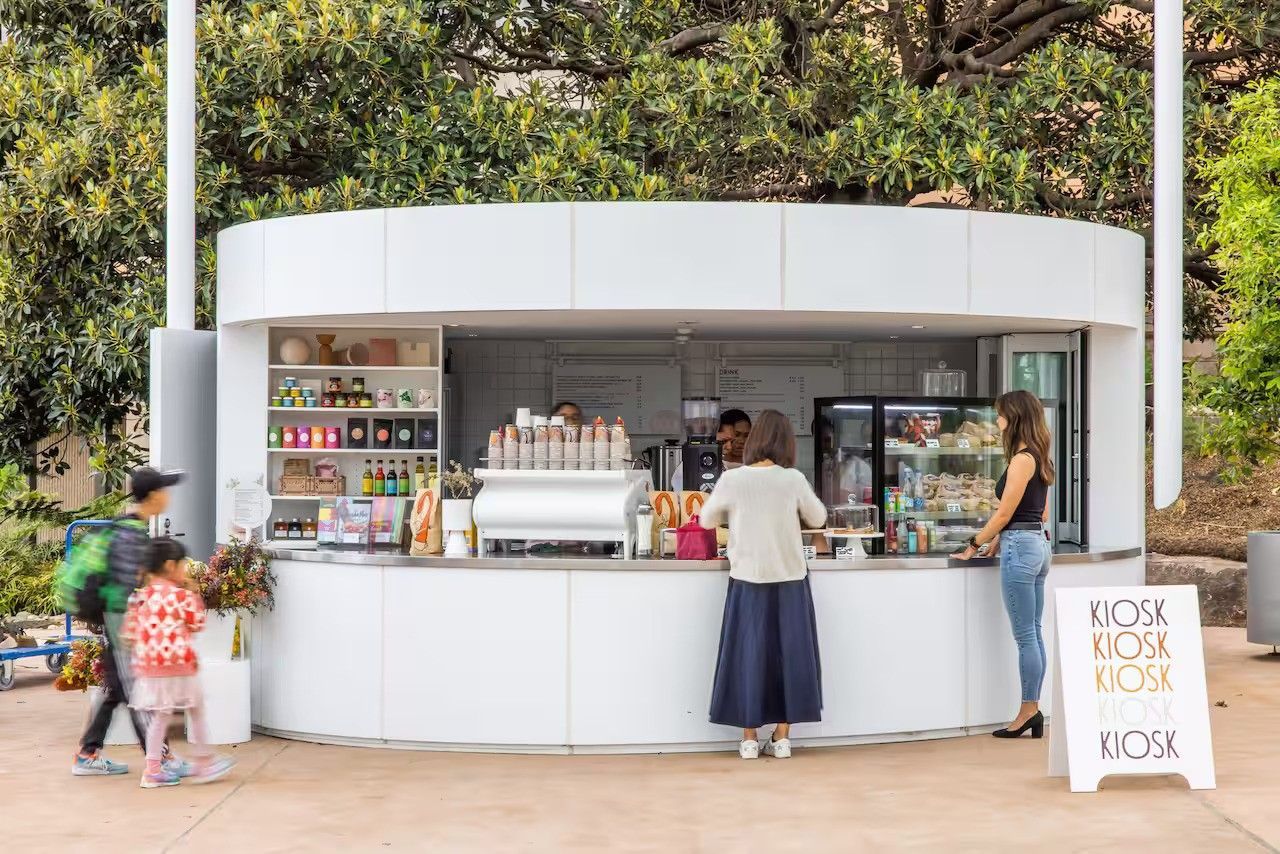
传统纸质或会员卡的会员管理与云会员管理系统之间的对比,可以从以下几个方面进行分点表示和归纳: 传统纸质或会员卡: - 数据主要记录在纸质卡片或有限容量的本地数据库中。 - 数据检索和更新速度慢,容易出错。 - 数据安全性低,易丢失或损坏。 云会员管理系统: - 数据存储在云端,可以随时随地访问和更新。 - 数据检索速度快,实时更新,准确性高。 - 数据安全性高,有专业的备份和恢复机制。 传统纸质或会员卡: - 功能有限,主要记录基本信息和简单的消费记录。 - 无法实现个性化的会员服务,如会员等级管理、积分兑换等。 - 营销活动通常依赖线下操作,效率低下。 云会员管理系统: - 功能丰富,包括会员信息管理、消费记录分析、会员等级管理、积分管理、优惠券发放等。 - 可以根据会员的消费习惯和行为数据提供个性化的服务。 - 支持在线营销活动,如电子优惠券、生日祝福等,提高营销效率。 传统纸质或会员卡: - 操作繁琐,需要人工输入和核对数据。 - 维护成本高,需要定期更换纸质卡片或维修本地数据库。 - 数据统计和分析需要人工处理,耗时耗力。 云会员管理系统: - 操作简便,支持快速输入和自动更新数据。 - 维护成本低,云端服务由专业团队进行维护和管理。 - 提供强大的数据统计和分析功能,帮助企业做出更明智的决策。 传统纸质或会员卡: - 扩展性差,难以满足企业日益增长的会员管理需求。 - 灵活性低,难以适应市场变化和客户需求的变化。 云会员管理系统: - 扩展性强,可以根据企业需求进行定制和扩展。 - 灵活性高,可以快速适应市场变化和客户需求的变化。 传统纸质或会员卡: - 客户体验一般,需要携带实体卡片进行消费和享受优惠。 - 无法提供实时的会员信息和优惠信息。 云会员管理系统: - 客户体验优秀,支持手机、电脑等多种终端进行访问和管理。 - 提供实时的会员信息和优惠信息,提高客户满意度和忠诚度。 云会员管理系统相比传统纸质或会员卡在数据管理与存储、功能与服务、操作与维护、扩展性与灵活性以及客户体验等方面都具有明显的优势。随着数字化和互联网技术的不断发展,云会员管理系统将成为餐饮、零售等行业会员管理的主流选择。 如果想对CRM了解更多的话就通过 WhatsApp 或点击 这里 联系我们,更深入了解 Minty CRM 能为您的生意带来的利益。
在餐饮业,一些看似微小的增值服务往往能带来意想不到的巨大价值。这些服务不仅能为顾客提供更优质的用餐体验,还能为餐厅创造更高的品牌价值和客户忠诚度。 增值服务在餐饮业中可以包括以下几个方面: 1. 提供免费Wi-Fi 为顾客提供免费Wi-Fi服务,方便顾客在用餐过程中娱乐、工作或处理其他事务。 2. 举办主题活动 定期举办各类主题活动,如亲子活动、美食节、文化体验等,增加餐厅的趣味性和吸引力。 3. 提供停车资讯 为驾车前来的顾客提供停车资讯服务,解决停车问题,提高顾客满意度。 4. 会员制度 推出会员制度,为会员提供积分兑换、会员专享折扣等优惠,会员自动升级等增加顾客粘性和回头率,培养与跨展可持续增长的客户群。 5. 个性化服务 根据顾客的需求和偏好提供定制化服务,如特殊饮食要求的菜品、节日主题菜品等。 6. 增加娱乐设施 在餐厅内设置娱乐设施,如电视、游戏机、桌游等,让顾客在等待或用餐过程中有更多的娱乐选择。 7. 送餐服务 为无法到店就餐的顾客提供送餐服务,如外卖或预定取餐服务,方便顾客用餐。 8. 预订服务: 提供线上或电话预订服务,方便顾客提前预订座位或菜品,减少等待时间。 9. 高效的点餐与结账流程 通过引入智能点餐系统、集成厨房系统和支付等科技手段,缩短顾客的等待时间,提升整体服务效率。提升顾客的用餐体验,为餐厅节省人力成本,提高盈利能力。 10. 礼品包装 为购买菜品或特色食品的顾客提供礼品包装服务,适合作为礼物赠送给他人。 11. 增值服务菜单和商品 在基础菜单之外提供增值服务菜单,如特色饮品、甜点、小吃,甚至外带的半成品或品牌纪念品如儿童卡通餐具等,增加顾客的选择和满意度。 通过这些增值服务,餐厅不仅可以增加顾客的消费体验和满意度,还能提升品牌形象,增加回头客数量。 我们致力于为您提供最优质的CRM解决方案支持!如有需求,请随时通过 WhatsApp 或点击 这里 与我们 Minty CRM 联系或发送询问以获取更多信息!

随着市场竞争的加剧和消费者需求的多样化,超市需要通过建立完善的会员系统来增强顾客黏性,提升顾客满意度,并精准地进行营销和推广。本方案旨在详细阐述超市会员系统的各项管理内容,包括会员注册与登录、会员信息维护、会员等级管理、积分及奖励系统、会员消费行为分析、优惠及促销活动、会员服务与支持以及会员安全及隐私保护等方面。 1. 会员注册与登录 超市应提供便捷的会员注册渠道,如线上网站、手机APP、门店自助机等,方便顾客随时注册成为会员。注册过程中,应收集必要的会员信息,如姓名、联系方式、生日等,以便后续进行精准营销。同时,提供多种登录方式,如手机号、邮箱、微信等,方便会员快速登录。 2. 会员信息维护 超市应建立完善的会员信息维护机制,确保会员信息的准确性和完整性。会员可随时通过线上或线下渠道更新个人信息,如修改联系方式、更改收货地址等。超市也应定期对会员信息进行核对和更新,确保信息的时效性。 3. 会员等级管理 超市可根据会员的消费金额、消费频次、会员时长等因素,设定不同的会员等级。不同等级的会员可享受不同的优惠和服务,如折扣、赠品、会员日特权等。同时,超市可设置会员等级升降机制,激发会员的购物积极性和忠诚度。 4. 积分及奖励系统 超市应建立积分及奖励系统,鼓励会员进行消费和互动。会员在超市购物、参与活动或推荐新会员时,可获得相应的积分或奖励。积分可用于兑换商品、抵扣现金或享受其他优惠。奖励可包括优惠券、礼品券、会员专享折扣等。 5. 会员消费行为分析 通过对会员消费行为的深度分析,超市可了解会员的购物习惯、喜好和偏好,从而进行精准的商品推荐和营销策略。超市可利用大数据分析工具,对会员的购买记录、搜索记录、浏览记录等信息进行分析,提取有价值的信息进行精准营销。 6. 优惠及促销活动 超市应定期或不定期地开展各种优惠及促销活动,如会员日、节假日优惠、满额减免等。同时,可根据会员等级和消费行为,为不同会员提供个性化的优惠和推荐。通过优惠和促销活动,吸引会员进行消费,提升超市的销售额和知名度。 7. 会员服务与支持 超市应提供完善的会员服务与支持,包括客服咨询、售后服务、退换货服务等。会员在购物过程中遇到问题或需要帮助时,可随时联系超市客服进行咨询和解决。超市应确保客服人员的专业性和服务质量,为会员提供优质的购物体验。 8. 会员安全及隐私保护 超市应重视会员安全及隐私保护,采取必要的技术和管理措施确保会员信息安全。在收集、存储和使用会员信息时,应遵守相关法律法规和标准,不得泄露、滥用或非法获取会员信息。同时,应加强系统安全性能的建设,确保会员数据不被篡改或泄露。 通过建立完善的会员系统并加强管理,超市可提升顾客满意度和忠诚度,增强市场竞争力。本方案提出的会员系统管理内容可为超市提供参考和借鉴,帮助超市更好地服务会员并实现可持续发展。 我们致力于为您提供最优质的CRM解决方案支持!如有需求,请随时通过 WhatsApp 或点击 这里 与我们 Minty CRM 联系或发送询问以获取更多信息!
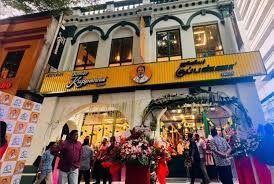
随着市场竞争的激烈和消费者需求的多元化,零售企业开始重视建立有效的顾客关系管理(CRM)系统。CRM系统能够帮助企业更好地理解和满足顾客需求,实现销售增长和品牌忠诚度的提升。本文将讨论零售企业CRM系统的重要性及其对顾客关系管理的影响。 一、CRM系统的定义与功能 CRM系统是一种集成的信息管理系统,旨在帮助企业管理和分析与顾客有关的数据,以提升与顾客互动的效果和效率。该系统可以自动化处理顾客数据,包括购买记录、投诉反馈、联系方式等,帮助企业了解和洞察顾客行为和喜好。此外,CRM系统还能支持市场营销、销售预测、客户服务等业务流程,提供个性化的服务和沟通,加强企业与顾客之间的互动。 二、CRM系统在零售企业中的应用 1. 客户数据管理 CRM系统对于零售企业来说,首先扮演着客户数据管理的重要角色。通过收集和整理顾客的基本信息、购买历史等数据,零售企业能够更好地了解顾客的消费习惯和偏好。这有助于企业进行市场细分,精准定位目标用户,优化产品组合和服务策略,提高顾客满意度。 2. 个性化营销 CRM系统可以帮助零售企业实现个性化营销,通过分析顾客的购买偏好和兴趣,针对性地发送推荐产品、促销活动等信息。个性化营销能够增强顾客的购买欲望和参与度,提高销售转化率,同时也促进顾客对品牌的认同和忠诚度。 3. 客户服务和投诉管理 CRM系统在零售企业中还起到了重要的客户服务和投诉管理的作用。系统可以帮助企业快速记录和跟进用户的投诉和问题,并进行及时的反馈和解决。通过CRM系统,企业可以建立高效的客户服务流程,提供更快捷、个性化的服务体验,提高顾客满意度和口碑。 三、CRM系统对顾客关系管理的影响 1. 增强顾客互动 CRM系统能够加强零售企业与顾客之间的互动。通过准确记录和分析顾客的行为和偏好,企业可以针对性地向顾客提供个性化服务和推荐信息,建立更紧密的关系。这不仅可以提高顾客的满意度,还能够促进口碑传播和顾客忠诚度的提升。 2. 改善营销效果 CRM系统的应用可以使零售企业的营销活动更加精准和有效。通过对顾客数据的分析,企业可以准确洞察顾客需求和喜好,并在适当的时机提供个性化的促销方案。这有助于提高营销活动的转化率和回报率,降低市场推广的成本和风险。 3. 增加客户忠诚度 零售企业通过CRM系统的运用,能够更深入地了解顾客需求,并能够及时响应和解决顾客的问题和投诉。这种关心和关爱能够增强顾客对企业的信任和忠诚度,促使他们成为长期的稳定客户,为企业带来持续的收入和口碑效应。 综上所述,零售企业的CRM系统在顾客关系管理中扮演着重要的角色。通过准确记录和分析顾客数据,实现个性化的营销和服务,企业能够更好地与顾客互动,提高销售和顾客忠诚度。随着技术的不断进步,CRM系统将在未来的发展中发挥更加重要的作用,引领零售企业与顾客关系的持续改进与创新。 如果想对CRM了解更多的话就通过 WhatsApp 或点击 这里 联系我们,更深入了解 Minty CRM 能为您的生意带来的利益。
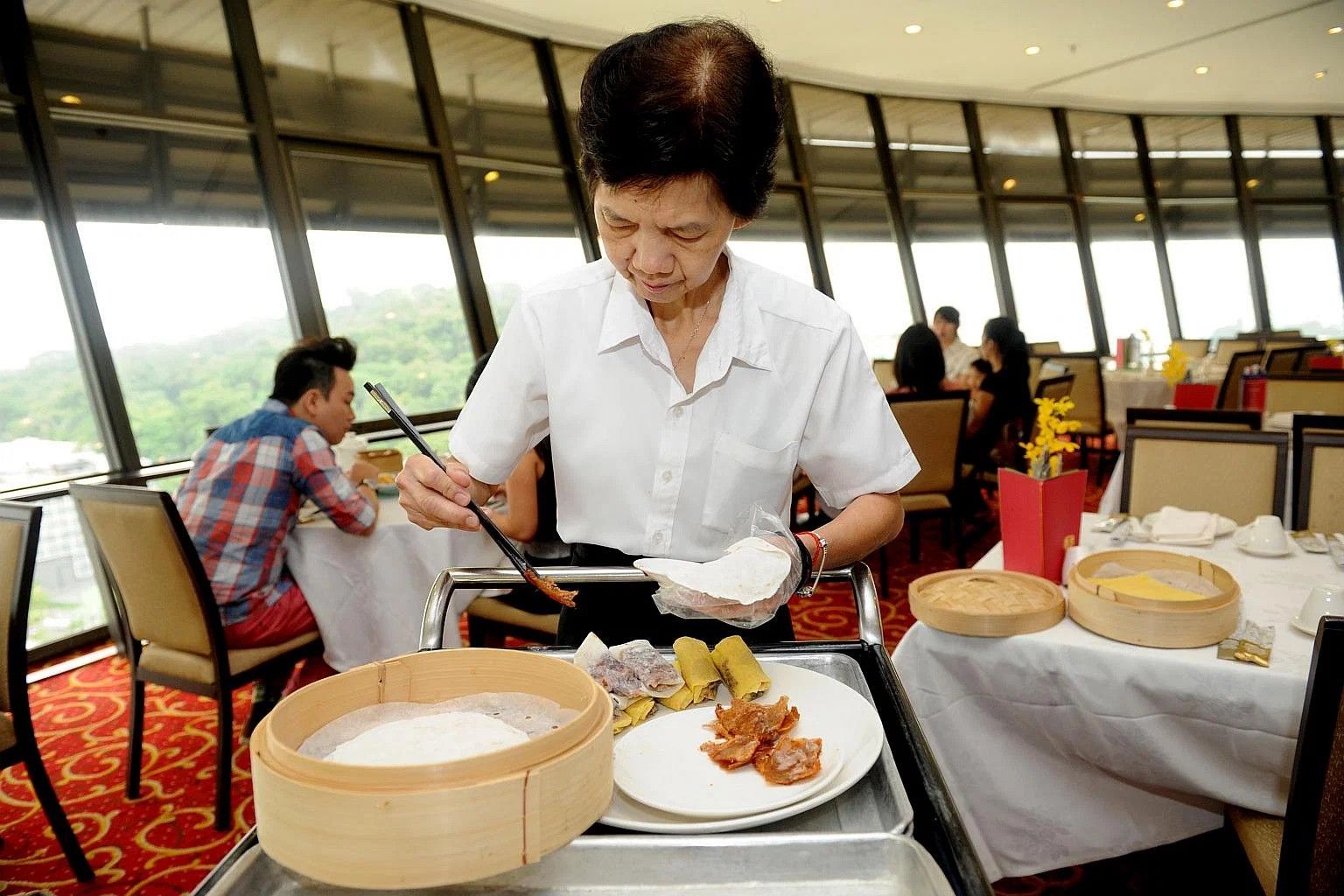
一、引言 随着科技的不断发展,餐饮行业也在逐步向数字化、智能化转型。客户管理系统(CRM)与扫码点餐的集成,为餐厅提供了一种全新的管理模式,通过技术的整合实现了更高效的服务流程和更好的客户体验。本文将从用户登录与验证、会员营销整合、扫码点餐功能、支付方式集成、数据报表与分析、桌台码管理与绑定等方面详细介绍该集成方案。 二、用户登录与验证 用户登录与验证是客户管理系统与扫码点餐集成的首要环节。通过整合,顾客可以通过微信、支付宝等常用应用扫码登录,系统自动进行用户身份验证。这一环节不仅提高了用户登录的便捷性,也确保了用户数据的安全性。 三、会员营销整合 会员营销是餐厅提升客户忠诚度和增加复购率的重要手段。客户管理系统与扫码点餐集成后,餐厅可以通过CRM系统获取用户的会员信息、消费记录等数据,并结合这些数据进行个性化的营销活动推送,如积分兑换、生日优惠等。此外,通过会员数据的分析,餐厅还能更好地了解客户需求,制定更有效的营销策略。 四、扫码点餐功能 扫码点餐功能是客户管理系统与扫码点餐集成的核心。顾客通过扫描桌上的二维码,即可进入点餐页面进行菜品选择。系统根据用户的会员信息和历史订单记录,推荐用户可能感兴趣的菜品,提高点餐效率。同时,系统还支持多人同时点餐、菜品分享等功能,满足不同顾客的需求。 五、支付方式集成 支付方式集成是客户管理系统与扫码点餐集成的关键环节。通过整合信用卡,NETS, PAYNOW, 微信等多种支付方式,餐厅可以为顾客提供更加丰富和便捷的支付体验。顾客在完成菜品选择后,可以直接在系统中进行支付,无需额外下载其他应用或进行复杂的支付操作。 六、数据报表与分析 数据报表与分析是客户管理系统与扫码点餐集成的重要功能之一。通过CRM系统,餐厅可以实时查看各种数据报表,如订单量、销售额、顾客满意度等。同时,系统还提供了丰富的数据分析工具,帮助餐厅深入了解用户行为、菜品销售情况等数据,为餐厅的经营决策提供有力支持。 七、桌台码管理与绑定 桌台码管理与绑定是确保客户管理系统与扫码点餐功能顺利运行的基础。餐厅可以在CRM系统中为每个桌台生成唯一的二维码,并将该二维码与对应的桌台进行绑定。顾客在扫码点餐时,系统会根据扫描的二维码自动识别桌台信息,确保订单的准确性和及时性。 八、总结 客户管理系统与扫码点餐的集成,为餐饮业者提供了一种全新的管理模式和服务体验。通过整合用户登录与验证、会员营销整合、扫码点餐功能、支付方式集成、数据报表与分析、桌台码管理与绑定等功能,餐厅可以实现更高效的服务流程和更好的客户体验。这不仅提高了餐厅的经营效率和客户满意度,也为餐厅在竞争激烈的市场中脱颖而出提供了有力支持。 我们致力于为您提供最优质的CRM解决方案支持!如有需求,请随时通过 WhatsApp 或点击 这里 与我们 Minty CRM 联系或发送询问以获取更多信息!
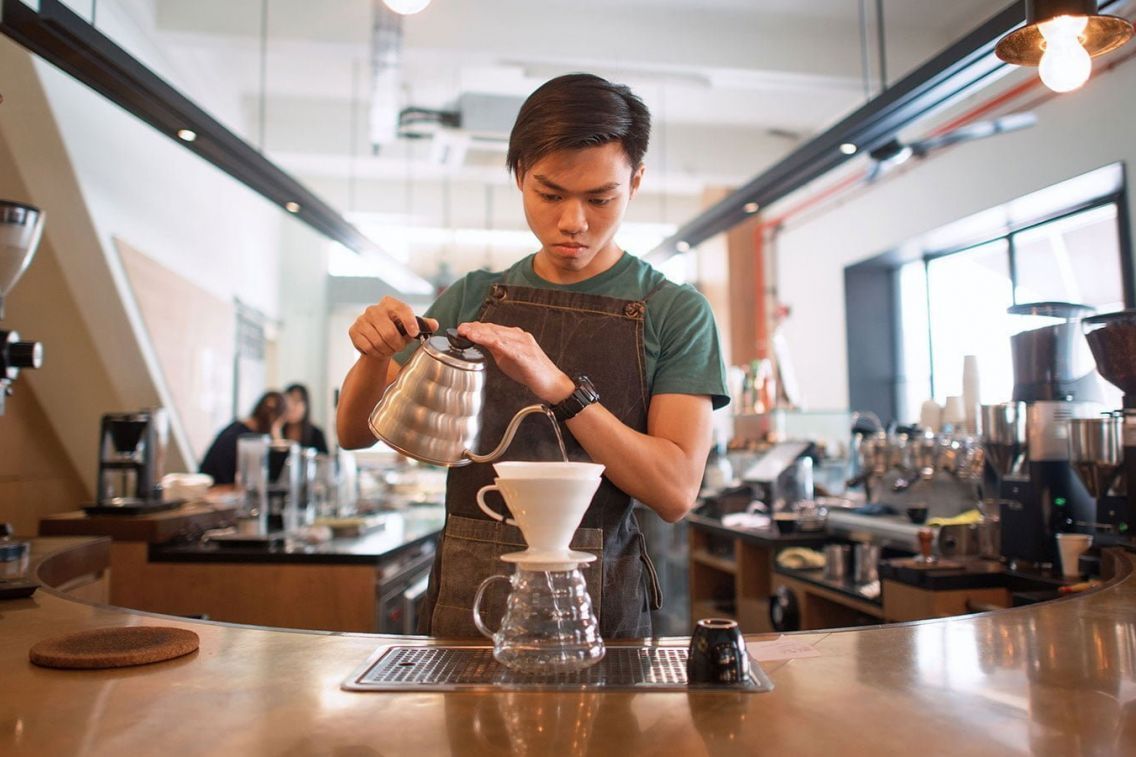
在新加坡餐饮市场竞争日趋激烈的环境下,咖啡馆如何吸引并保持客户忠诚度成为一项至关重要的挑战。一个精心设计的忠诚度计划不仅可以刺激客户的重复消费,还能深化与客户的互动和关系。以下是五种有效的忠诚度计划,咖啡馆业者都应认真借鉴: 1. 积分制忠诚度计划: 原理: 客户每次消费均可获得积分,积分数量基于消费金额。积分可兑换奖励,如免费饮品、糕点或折扣。 示例: 每消费1新元累积1积分,累积10积分可兑换一杯免费咖啡或一份糕点。 2. 打卡式忠诚度计划: 原理: 提供实体或数字打卡卡,每次购买后盖章或打孔,完成特定次数购买后获得奖励。 示例: 购买9杯咖啡,第10杯免费。 3. 分级别忠诚度计划: 原理: 根据客户的消费金额和参与度划分不同级别(如银级、金级、铂金级),每个级别享有不同奖励。 示例: 银级会员消费满100新元后享5%折扣,金级会员消费满300新元享10%折扣及生日赠品。 4. 配套忠诚度计划: 原理: 提供月费或年费配套选项,会员享受特定福利,如不限量咖啡续杯、商品折扣和独家活动。 示例: 月费30新元,享无限续杯、食品10%折扣及优先活动邀请。 5. 推荐计划: 原理: 鼓励客户推荐朋友或家人到咖啡馆消费,推荐人获得奖励。 示例: 推荐新客户进行首次消费,推荐人下次消费享20%折扣。 通过实施这些忠诚度计划,咖啡馆可以显著提升客户保留率,并在激烈的餐饮市场中脱颖而出。不同的计划满足了不同客户的偏好和需求,加强了客户与咖啡馆之间的情感联系。从积分制到订阅制,再到推荐计划,关键在于创造具有吸引力的价值和奖励,使客户愿意反复光顾。 Minty不仅为您提供宝贵的行业见解,还是一家在新加坡提供CRM解决方案的公司,专注于为餐饮、零售和美容/水疗业务提供全方位的客户忠诚度管理解决方案。如果您正在寻找CRM/会员管理系统,请随时通过 WhatsApp 或点击 这里 与我们联系,或点击此处发送咨询,让我们助您一臂之力!
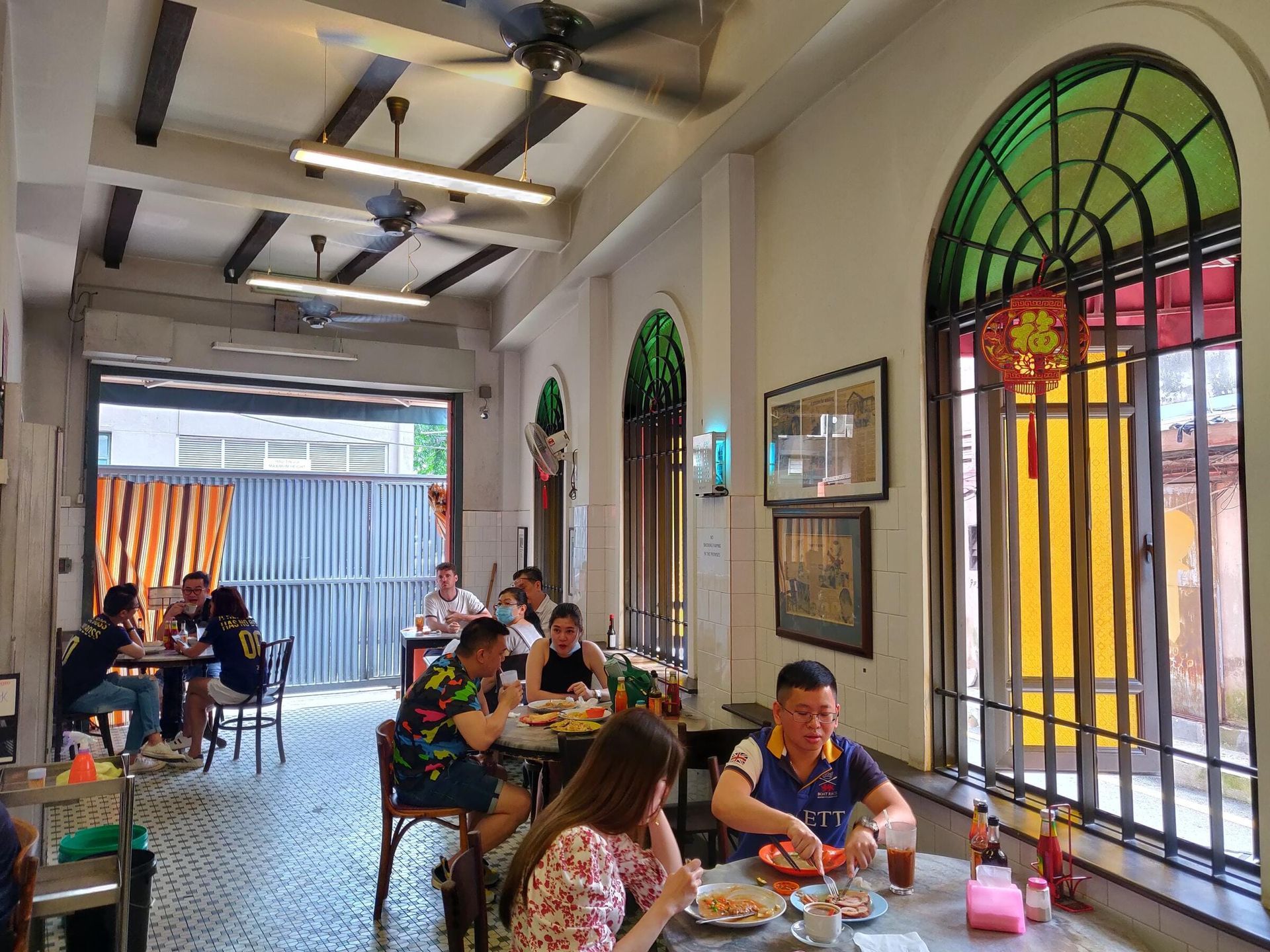
客户管理系统(CRM)与点餐系统集成带来的巨大飞跃主要体现在以下几个方面: 1. 提高经营效率 - 点餐系统的引入使得服务员能够更快捷地接受顾客的点餐,减少了服务员的工作量,从而提高了餐厅的经营效率。 - 餐饮CRM系统可以帮助企业更好地管理客户数据,包括客户偏好、消费习惯等,与点餐系统结合后,能够进一步加快订单处理速度,提升整体经营效率。 2. 提升服务质量 - 客户管理系统通过数据分析,可以帮助餐厅预测客户需求,从而提前准备食材,减少等待时间,提升顾客的就餐体验。 - 结合点餐系统,餐厅可以为顾客提供更加详细和准确的菜品信息,包括价格、口味、配料等,让顾客在点餐时能够做出更明智的选择。 3. 增强客户体验 - 通过CRM与点餐系统的集成,餐厅可以为顾客提供个性化的服务,如根据顾客的口味偏好推荐菜品,提供专属优惠等,从而增强顾客对餐厅的好感度和忠诚度。 - 点餐系统的自动化流程减少了人为错误和等待时间,使顾客能够享受到更加流畅和便捷的就餐体验。 4. 优化客户管理 - 客户管理系统可以帮助餐厅收集和分析客户数据,了解客户的消费习惯、偏好和需求,从而制定更加精准的营销策略。 - 与点餐系统结合后,餐厅可以更加精准地追踪客户的消费记录,分析客户的消费行为和喜好,为后续的营销和服务提供有力支持。 5. 降低运营成本 - 点餐系统的自动化处理减少了服务员的工作量和错误率,降低了餐厅的人力成本。 - 客户管理系统可以帮助餐厅更好地管理库存和采购,避免浪费和积压,进一步降低运营成本。 6. 提升品牌形象 - 通过引入先进的客户管理系统和点餐系统,餐厅可以展现出其现代化和高效的管理水平,提升品牌形象和吸引力。 - 客户管理系统可以帮助餐厅建立完善的客户档案和服务记录,为顾客提供更加贴心和专业的服务,进一步提升品牌形象和口碑。 综上所述,客户管理系统与点餐系统集成带来的巨大飞跃主要体现在提高经营效率、提升服务质量、增强客户体验、优化客户管理、降低运营成本以及提升品牌形象等方面。这种集成不仅为餐厅带来了实际的经济效益,也为顾客带来了更加优质和便捷的就餐体验。 我们致力于为您提供最优质的CRM解决方案支持!如有需求,请随时通过 WhatsApp 与我们 Minty CRM 联系或发送询问以获取更多信息!

